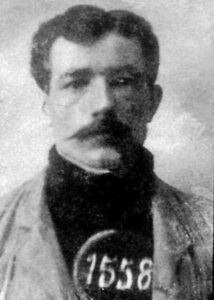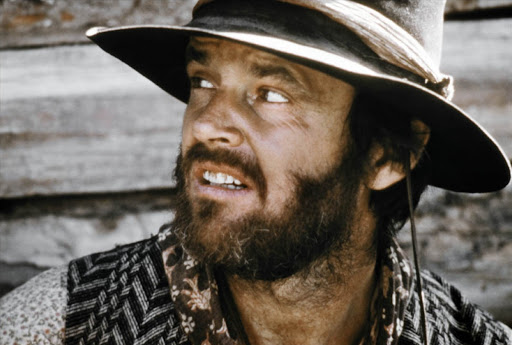
The Unlikely Redemption of Joe Boot: From Outlaw’s Shadow to Respected Citizen
The annals of the American Old West are replete with tales of hardened outlaws, men who lived by the gun and often died by it, leaving behind a legacy of violence and infamy. From Billy the Kid to Jesse James, their names echo through history, synonymous with the wild, untamed frontier. Yet, amidst these legendary figures, there exists a lesser-known but equally compelling character whose story deviates sharply from the familiar narrative of bloodshed and tragic demise. His name was Joe Boot, born George Washington Boot, and his journey from the shadow of the Doolin-Dalton Gang to the quiet respectability of a settled life offers a fascinating glimpse into the complex realities of the frontier and the enduring possibility of redemption.
Boot’s story is not one of a born killer or a vengeful rebel. Instead, it’s the saga of a man swept up in the currents of a lawless era, a participant in audacious robberies who nonetheless retained a reputation for being less violent, more reluctant than his notorious associates. His eventual transformation from a federal prisoner to a cherished community member challenges our preconceived notions of what an outlaw truly was, and what he could become.
The Allure of the Indian Territory

Born in Missouri in 1860, George Washington Boot came of age in a post-Civil War America still reeling from internal conflict and gripped by the westward expansion. Like many young men seeking opportunity or escape, he drifted towards the burgeoning Indian Territory (present-day Oklahoma), a vast, largely unpoliced land that served as a magnet for both legitimate settlers and those seeking to evade the law. The Territory, a patchwork of tribal lands with ambiguous jurisdiction, offered fertile ground for a new breed of criminal – the train and bank robber.
It was in this crucible of lawlessness that Boot encountered Bill Doolin, a charismatic and cunning leader who, after a falling out with the legendary Dalton Gang, was forming his own notorious outfit, often referred to as the Wild Bunch or the Doolin Gang. Boot, described by contemporaries as a quiet, unassuming man, perhaps even a bit naive, was drawn into Doolin’s orbit. Accounts suggest he was never the instigator or the most aggressive member, but rather a follower, albeit a willing one, seduced by the promise of quick money and the thrill of the outlaw life.
A Gentleman Bandit (of Sorts)
The Doolin Gang quickly established itself as one of the most feared outfits in the Territory, specializing in audacious train and bank robberies. Joe Boot was an integral part of several of these high-profile heists, though his participation often came with a curious footnote: a reputation for relative civility.
One of the most famous incidents involved the robbery of the Cimarron, Oklahoma bank on June 2, 1893. The gang rode into town in broad daylight, masked and armed. Inside the bank, they encountered George B. Masterson, a female bank clerk known for her unwavering courage. As the outlaws demanded the vault be opened, Boot reportedly engaged in a brief, almost polite exchange with Masterson. While threatening, he was not overtly brutal. The story goes that when Masterson, holding a baby, defiantly told them she didn’t have the keys, Boot responded with a line that became emblematic of his peculiar brand of outlawry: "We don’t want your money, we want the bank’s." This interaction, though brief, painted a picture of a man who, even in the throes of a violent crime, maintained a degree of restraint, a stark contrast to the more ruthless members of the gang.
Another significant engagement for the Doolin Gang, and Boot by extension, was the Adair train robbery on July 14, 1892. This was a particularly violent affair, with the gang engaging in a fierce shootout with guards, resulting in casualties. While Boot was present, his specific role in the bloodshed is less emphasized than his participation in the overall planning and execution. The gang’s brazenness, their willingness to confront armed resistance, solidified their fearsome reputation, and Boot was undeniably part of that.
Throughout his time with the gang, Boot was often depicted as a man who, while complicit in their crimes, seemed less enthralled by the violence itself. Marshals who later captured him, and even some of the citizens he encountered, noted his generally quiet demeanor. He wasn’t known for gratuitous cruelty or senseless killing, a trait that set him apart from many of his peers in the outlaw fraternity. This perceived "gentlemanly" quality, however, did not diminish his guilt in the eyes of the law. He was a robber, plain and simple, and the federal marshals were hot on his trail.
The Relentless Pursuit of Justice

The burgeoning lawlessness of the Indian Territory eventually spurred a determined response from federal authorities. Legendary lawmen like Heck Thomas, Chris Madsen, and Bill Tilghman, known collectively as "The Three Guardsmen," made it their life’s mission to dismantle the Doolin Gang. Their pursuit was relentless, employing tactics that were as cunning as they were brutal. The Wild West was truly a battleground between good and evil, and the marshals were systematically picking off the gang members, one by one.
Joe Boot’s luck eventually ran out. On May 16, 1895, Heck Thomas, after a prolonged and arduous chase, cornered Boot in a hayloft near Enid, Oklahoma. The details of his capture are not as dramatic as some of his gang members’ final shootouts; instead, it was a quiet, determined apprehension. Boot, likely exhausted and out of options, surrendered without a fight. His capture was a significant victory for the lawmen, signaling the beginning of the end for the Doolin Gang.
Following his arrest, Boot was tried and convicted for his role in the Cimarron bank robbery. He was sentenced to a lengthy term in the federal penitentiary in Columbus, Ohio. The walls of a federal prison were a far cry from the open plains of the Indian Territory, a stark and sobering environment that would profoundly impact the trajectory of his life.
The Path to Redemption
For many outlaws, prison was either a temporary setback before another escape or a prelude to an early death. For Joe Boot, it was the crucible of transformation. The harsh realities of incarceration, the loss of freedom, and the forced introspection seem to have ignited a fundamental change within him. While inside, he was described as a model prisoner, quiet and industrious. He absorbed the lessons of his past, reflecting on the choices that had led him down the outlaw path.
In 1900, after serving five years of his sentence, Joe Boot was granted a pardon by President William McKinley. The reasons for his early release are not definitively known, but it’s likely his good behavior and perhaps the intercession of those who believed in his capacity for change played a role. He emerged from prison a free man, but also a man with a choice: return to his old ways or forge a new life.
Remarkably, Joe Boot chose the latter. He didn’t seek out his old associates or succumb to the allure of quick money. Instead, he made a conscious decision to embrace respectability. He moved to the Lawton, Oklahoma area, a community far removed from his outlaw past, and began to build a new life for himself. He took up farming and ranching, honest work that required diligence and perseverance.
Over the years, Boot not only shed his outlaw identity but actively cultivated a reputation as a hardworking, honest citizen. He married and raised a family, becoming a contributing member of his community. Those who knew him in his later years described him as a quiet, kind, and trustworthy man. The "gentleman bandit" had truly become a gentleman. He lived out his days peacefully, a stark contrast to the violent ends that met most of his former gang members. Bill Doolin, George "Bitter Creek" Newcomb, Charley Pierce – all met their demise in shootouts or ambushes, their lives cut short by the very violence they embraced. Joe Boot, however, lived to be 84 years old, passing away in 1944, a respected patriarch.
A Legacy of Change
Joe Boot’s story is a compelling anomaly in the brutal chronicles of the American Old West. It reminds us that the line between outlaw and upstanding citizen was often blurred, shaped by circumstance, opportunity, and the sheer will to survive. His journey from a participant in notorious train and bank robberies to a man of peace and integrity offers a powerful testament to the human capacity for change and the enduring allure of a second chance.
In an era defined by black-and-white morality and swift, often violent, justice, Joe Boot’s life presents a nuanced portrait. He was not a hero, nor was he a villain in the mold of the most depraved criminals. He was a man who made bad choices, suffered the consequences, and then, through sheer force of will, chose a different path. His legacy is not one of blazing guns or stolen gold, but of quiet perseverance, a testament to the idea that even in the wildest corners of the American frontier, redemption was always within reach for those brave enough to grasp it. His life serves as a quiet reminder that history is often far more complex and human than the legends we choose to tell.


